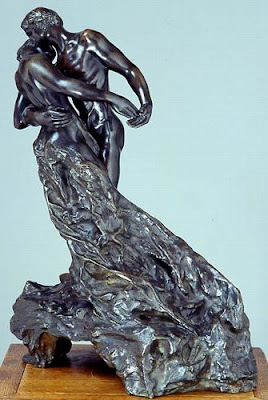The 30th anniversary of the Alexander String Quartet in Herbst Theater brought us a very high class concert.
Joyce DiDonato and her accompanist Jake Heggie began the program with Venezia, a cycle of 6 songs in Venetian Dialect by Reynaldo Hahn. From the stage Joyce told us that these songs were originally performed in Venice in a gondola. The composer had a small piano put into a gondola and sang them floating around in the lagoon. You can possibly picture this. Joyce did not smoke or play the piano herself as Hahn would have done. This is completely charming and charmingly performed.
This was followed by the Debussy string quartet played by the Alexander String Quartet. We are so accustomed to this style of music that its effects are no longer remarkable.
Heggie was asked to compose a piece for the anniversary, and he replied that he was an opera composer. They responded not to worry--they intended to provide a singer, one Joyce DiDonato. This is a heavenly idea.
Executed like a work from heaven. The result of this collaboration is Camille Claudel: Into the Fire (2012), a work for string quartet and mezzo-soprano. I am pleased to have pulled myself together and made the trip to see it.
This is a remarkable work. First there is a sculpture--Camille Claudel was a sculptor.
Then there is a poem--"Rodin" in this case--written by Gene Scheer, who is also the librettist of Heggie's Moby-Dick and Picker's An American Tragedy. So the profession of librettist is not dead after all. Then there is a song, simultaneously sweet and dramatic to fit images.
"La Valse" "Take me one step closer one step back one step spins one step hovers Take me!"
"La Petite Châtelaine" we all cried.
The story has an unhappy ending. She began to destroy her sculptures and was subsequently confined to a mental hospital. The song cycle ends with Claudel as an old woman still in the asylum being visited by an old friend.
The words are lovely. Heggie is developing into a wonderful composer. His use of DiDonato's voice is skilled and sensitive. His writing for string quartet is lyrical and romantic. It is a very good sign that he calls himself an opera composer. It was truly a significant occasion.
The encore, "Morgen" by R. Strauss, used everyone in a charming arrangement.
Here is a short blog post from Jake Heggie about this concert.
The encore, "Morgen" by R. Strauss, used everyone in a charming arrangement.
Here is a short blog post from Jake Heggie about this concert.














No comments:
Post a Comment